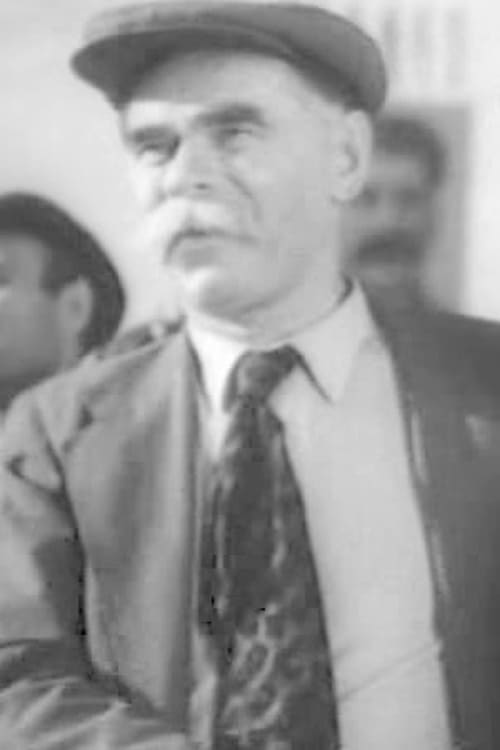Aleksandr Chistyakov
出生 : 1880-01-01, Russian Empire
死亡 : 1942-01-01
略歴
Born in 1880, he never graduated from high school, he worked as an accountant. From 1921 he studied at the First State Film School ( Leo Kuleshov's workshop ). Since 1925, he actively acted in films. The first role - a worker in the film "Arsenals" became a characteristic role for the subsequent work of the actor.
He also was the champion of the Russian Empire in hammer throwing. Self-taught, he began to master hammer throwing at the end of the 19th century and in 1912 became the first record holder in Russia. He was a very good cyclist and an able wrestler too.
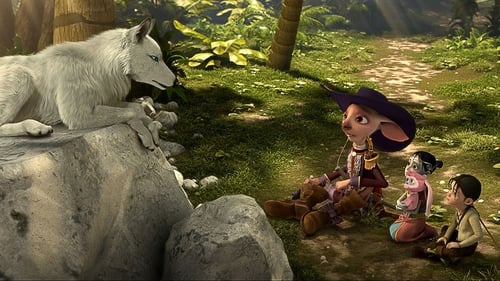
Writer
A fairytale about a grand life journey of a 10-year old boy Savva devoted to help his Mom and fellow village people to break free from the vicious hyenas.

Together with other graduates of the Maritime Institute, Irina Zakharova returns to her native Odessa. At the distribution commission, she seeks the appointment of the first assistant to the captain on the infamous Pobeda vessel, with the most loosened crew. Carrying a personal example of sailors, Irina successfully fights for a turning point in the mood of sailors, and when the ship gets into a storm, she shows the outstanding qualities of a real sailor. Against the background of these events, the theme of lyrical relationships between Irina and the navigator of the red-flagged ship "Abkhazia" Vasily in love with her is unfolding.


Mishchenko
The final part of trilogy about the life of a young factory worker, Maxim. Following the Russian Revolution, Maksim is appointed state commissar in charge of the national bank. With great efforts, he learns the complexies of the banking trade and begins to fight off sabotaging underlings. Dymba, now a violent enemy of the Republic, tries to rob a wine store but is arrested with Maksim's help. Maksim also exposes a conspiracy of a group of tsarist officers who prepare an attempt against Lenin. He then joins the Red Army in its fight against the German occupation.

Aleksandr Petrovich Postnikov, geologist (as A. Chistyakov)
The film tells about a band of demobilized Red Army men and two civilians who cross a Middle Asian desert. They are forced to do battle with superior forces of Basmachi rebels for the dry draw-well.

Mishchenko, white-wooly mustached worker
The second part of trilogy about the life of a young factory worker, Maxim. In July 1914, the Bolsheviks and Mensehviks compete for representation of the working-class in the Duma. Maksim, who just returned from exile, calls the workers to strike as a protest against the firing of six of their colleagues. The traitor Platon Dymba assaults Maksim, wounding him severely. When the strike unfolds the workers demonstrate by the thousands, the news of the outbreak of World War I suddenly arrives. Maksim gets drafted.

Once a long ago the father of Ostap left a village and came on earnings to Donbas. The lined up a shanty put beginning to miner's settlement of Sobacheevka. Ostap went on the way of father, thirty years of bending a back on the owner of mine. And when a father was driven out from work, Ostap understood that it is senseless to blame in the troubles only master.
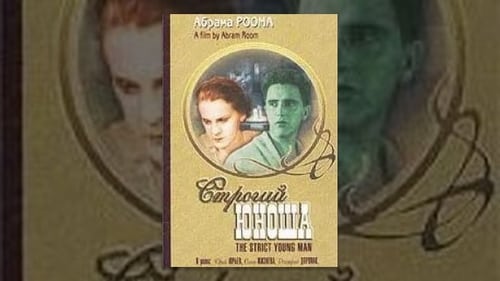
Olga's Father
The film’s content makes no concessions to the usual expectations of Soviet audiences of the 1930s. The cast of characters is extremely unlikely in almost every conventional respect. The action involves the household of the prominent Dr. Stepanov and his young wife, Masha, who share their large and richly adorned mansion with the parasitical Fedor Tsitronov, whose presence in the household is given only the most implausible of explanations. Equally implausible is the acquaintance of the family with the young and proud Grisha Fokin, whose leadership role in the Young Communist League is never clearly defined and who is never seen engaged in any work or professional activity.


Moustachioed mechanic Khrushchev
The daredevil pilot Sergei Belyaev takes a risk flying a plane which is not properly maintained and crashes dangerously, landing in hospital, his plane going up in smoke. The aviation student Galya Bystrova, having a crush with Belyaev, unfortunately tends to imitate him in the air. Later, heeding the advice of the wise headmaster Rogachev, they become experienced pilots. Bystrova is assigned to Pamir, and Rogachev, in love with her, is sent to Sakhalin.

A group of Ukrainian women are forced to work in the mine under the supervision of cruel enemy soldiers. When the soldiers are forced to retreat and decide to blow up the mine, the women organize a guerrilla action to stop them.

A wise and forgiving communist leader decides to send a young worker, Karl Renn, as an international delegate to the Soviet Union after the worker had deserted a picket-line and had expressed doubts about the methods of class struggle in in his own country.
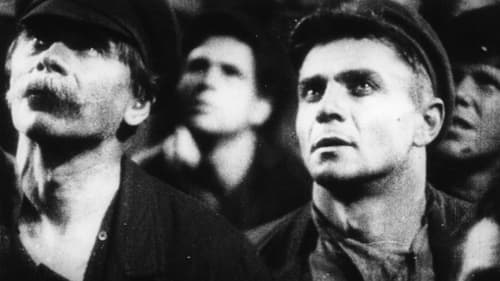
Pyotr Ivanonich Kadkin
Outskirts is an internationally renowned masterpiece of early sound cinema. In a remote Russian village during World War I, colorful and nuanced characters experience divided loyalties: family loyalty vs. personal desire, nationalism vs. transcendent humanism.

Ivan Timofeyev
The film tells about the class struggle in the countryside during the creation of the first collective farms. Only the first part has survived. Director Ivan Pyryev began work on the film. It has not been preserved in its entirety.

Uncle Sasha
As a response to criticism for the allegedly excessive “mass appeal” of his earlier epic STORM OVER ASIA (1928), Vsevolod Pudovkin unleashed his flair for experimentation in what was supposed to be the director’s first sound feature. Everything went wrong: technical problems forced him to complete the film as a silent; viewers were baffled by the lack of a recognizable plot; then, the ideological climate of the Soviet Union changed. He was now being blamed for catering to bourgeois taste! Time has come to set the record straight. Here’s lyrical cinema at its best, deliberately operatic and yet intimate as it matches the characters’ inner life with the solemn rhythms of nature, and depicted through breathtaking black-and-white photography. A sensation at last year’s Pordenone fest, Pudovkin’s long-forgotten swan song to the art of montage is resurrected by Gabriel Thibaudeau’s emotionally charged live music performance. –PCU (USSR, 1930, 75m)

Naturally, the circus milieu of 2 Buldy 2 (1929) encourages stunts. A father and son, both clowns, are to perform together for the first time, but the civil war separates them, and the elder Buldy, tempted for a moment to acquiesce to the White forces, casts his lot with the revolution. At the climax Buldy Jr. escapes the Whites thanks to flashy trampoline and trapeze acrobatics; the gaping enemy soldiers forget to shoot.

The Russian Rebel Leader
In 1918 a young and simple Mongol herdsman and trapper is cheated out of a valuable fox fur by a European capitalist fur trader. Ostracized from the trading post, he escapes to the hills after brawling with the trader who cheated him. In 1920 he becomes a Soviet partisan, and helps the partisans fight for the Soviets against the occupying British army. However he is captured by the British when they try to requisition cattle from the herdsmen at the same time as the commandant meets with a reincarnated Grand Lama. After the trapper is shot, the army discovers an amulet that suggests he is a direct descendant of Genghis Khan. They find him still alive, so the army restores his health and plans to use him as the head of a puppet regime. The trapper is thus thrust into prominence as he is placed in charge of the puppet government. By the end, however, the "puppet" turns against his masters in an outburst of fury.

A Socialist Realist distortion of Dr. Paul Kammerer's experiments in the inheritance of acquired character(istic)s -- the (not entirely anti-Darwinian) conjecture that certain changes the environment produces in an individual may spontaneously appear in the next generation. As recounted in Arthur Koestler's The Case of the Midwife Toad (1971), Kammerer (1880-1926) claimed that darkened footpads he had artificially induced in a toad had been passed on to its offspring. When it was discovered that his critical specimen had been injected with ink (though why and by whom is still unknown), his credibility was destroyed and he apparently suicided. Richard Goldschmidt's synopsis of the film in "Research and Politics," Nature (1949), mocks it as Soviet propaganda in support of the inheritance of acquired characters: The importance attached to the subject is revealed by the facts that none other than the then all-powerful [People's] Commissar for [Public] Education, the highly ...

Rabočij
A peasant in rural Russia comes to St. Petersburg to escape absolute poverty and find work at the outbreak of the First World War. He comes to stay with his friend, a Bolshevik worker who has organized a strike at his factory. The peasant betrays his friend to the factory's greedy management, leading to the arrest of the striker. Feeling remorseful at his actions, the peasant attempts to plead for his friend’s freedom, but the situation escalates and he is imprisoned without trial and sent to fight in the war. After returning from the front, the peasant joins the revolutionary fight along with the Bolshevik worker.
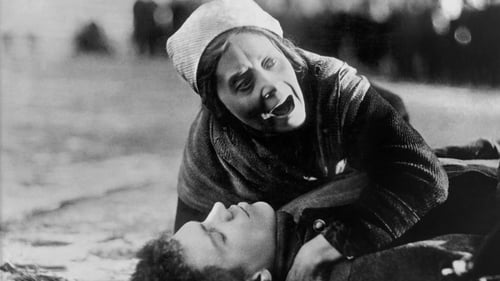
Vlasov, the Father
A story about a Russian family torn apart by a worker's strike. At first, the mother wants to protect her family from the troublemakers, but eventually she realizes that her son is right and the workers should strike.
